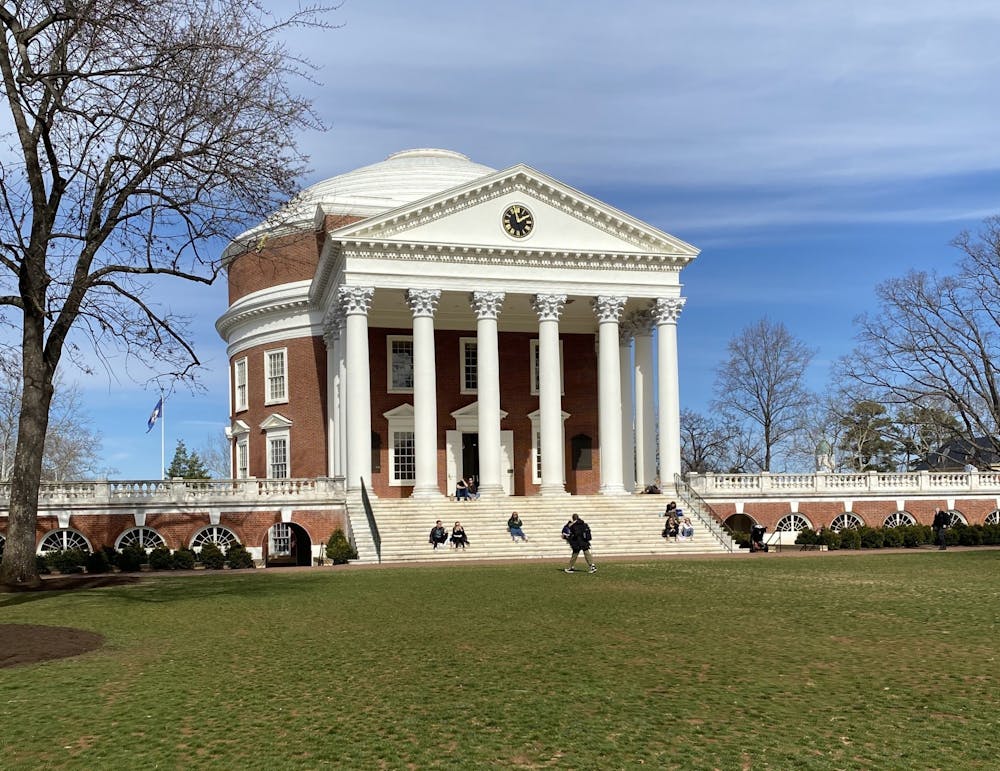The alpha Kappa Delta Phi and Sigma Psi Zeta sororities, in collaboration with the Asian Student Union and She Writes History, hosted Professor Sylvia Chong and a panel of four students to discuss the impact of COVID-19 on Asian Pacific Islander Desi American communities Monday night.
Chong serves as the director of the Asian Pacific American Studies minor and an associate professor of English. The discourse, titled “COVID-19: The Asian American Experience” was held as aKDPhi’s annual Asian American Women’s Initiative event and Sigma’s annual VOICES event.
The AAWI aims to spread awareness about issues Asian American women face in today’s society. Past themes addressed mental health, beauty standards and media representation. VOICES is a cultural event held every year and previous VOICES formats include banquets and cultural festivals.
As the event was hosted by two predominantly APIDA sororities, Chong focused her talk on the experiences of Asian American women and the intersectionality of race and gender. She defined intersectionality — first coined by Kimberlé Crenshaw in 1989 — as the simultaneous impacts of one’s experience with multiple identities, including race, gender and economic class. Chong summarized Crenshaw’s example of intersectionality with the scenario of an individual standing in a traffic intersection and getting hit by a car.
“You do not stop to think to yourself, ‘Did that car come from Gender Street or Race Street?,’” Chong said. “All you know is that you’ve been injured, and you’ve been injured precisely because you’re standing where you are.”
Chong referenced English Prof. Susan Fraiman’s talk at the April 9 teach-in on anti-Asian violence, where faculty members from various departments spoke to the community at the Rotunda steps on the history of anti-Asian violence. Chong organized the teach-in in response to the March 16 Atlanta spa shootings, in which a white man killed eight people, including six women of Asian descent.
During her time, Fraiman discussed the “Asian fetish.” Since the 1875 Page Act prevented all Chinese women from entering the U.S. on suspicion of prostitution, legal doctrine has singled out Asian American women by race and gender.
These restrictive laws posed Chinese women as “passive objects” to be saved by progressive white women — a victimizing narrative that has removed agency from Asian American women, according to Chong.
“Even for white feminists, Asian American femininity is often something they contrast themselves against,” Chong said. “Perhaps they don’t always say this about Asian Americans, but they certainly denigrate and exoticize Asian women abroad as victims of their patriarchal societies, victims of capitalism, victims of poverty and war.”
Chong then moved to discuss the Atlanta spa shootings. Much media coverage focused on whether the victims were sex workers or not, which delegitimizes them as Asian American figures and humans, Chong said. A candlelight vigil was held at the McIntire Amphitheater on March 22 to mourn the lives lost.
Chong found a similar case of misconstrued narrative building in the Derek Chauvin trial. Last May, George Floyd — a Black man — was killed while held under arrest by Chauvin, a white police officer. Chauvin kneeled on Floyd’s neck for over nine minutes and was found guilty of second-degree murder, third-degree murder and second-degree manslaughter Tuesday afternoon.
Chong noted that Chauvin’s attorney focused on George Floyd’s relation to drugs rather than Chauvin kneeling on Floyd, delegitimizing Floyd as a victim.
Just as focus on possible drug addiction overshadows Floyd’s death, centering the issue of sex work in the Atlanta shootings undervalues the lives of the victims and foregrounds the sexuality of Asian American women, according to Chong.
“How can we be Asian American females and access … the features of other forms of femininity such as sexual agency at the same time that we also then protect our rights against exploitation?” Chong said.
Directly addressing the students at the event, Chong talked about how the daily exploitation of female Asian American sexuality — which motivated the Atlanta shootings — can affect romantic relationships. As an example, she referenced a past Macaulay Caulkin interview in which he expressed excitement over having Asian babies with partner Brenda Song.
“I’m not trying to [denigrate] anyone’s relationships, but how do you know that you’re in a relationship for who you are, rather than what someone imagines you to be?” she said. “Are you seeing me? Are you seeing the shadow of the Page Act? Are you seeing Miss Saigon with the college degree?”
Following Chong’s comments, the floor opened to discussion. One student asked Chong about her thoughts on whether the University is adequately supporting the APIDA community. In response, Chong announced that she would be part of a group going to talk to University President Jim Ryan on this issue. Her hope is to hire more professors specialized in Asian American studies, as she is one of five professors affiliated with the APAS program.
“I wish that race were not so tokenized so that people thought if you have one, you have enough,” she said. “I never think that hiring these kinds of professors is at the expense of other minorities — I think it should be at the expense of the majority.”
Responding to another student question on how students and organizations can combat anti-Asian hate, Chong noted that all choices are “political,” including inaction. She recommended collaborations between multicultural organizations as a way to support the interconnected struggle of all marginalized groups.
The event transitioned to introduce the student panel, consisting of second-year Engineering student Vy Nguyen, fourth-year College student Kim Salac, third-year Nursing student Jana Mirafuente and second-year College student Sanjeev Kumar.
The panelists each shared what being Asian American meant to them. Kumar shared his journey to accepting his Asian American identity after being told that being Indian does not mean he is Asian. Salac called their Asian American identity an “active definition” and spoke on the ongoing process of learning about being an Asian American woman in a predominantly white school. In 2020, 55.67 percent of undergraduates identified as white American while 16.24 percent identified as either Asian American, Native Hawaiian or Pacific Islander.
“I keep trying to almost unlearn this habit of centering whiteness in my Asian American identity,” Salac said. “Me being Asian American is not me being non-white. I don’t want that to be central to my identity formation.”
Nguyen and Mirafuente then shared how they were affected by the recent spike in anti-Asian hate crimes amidst the pandemic and following the Atlanta shootings. Recent acts of violence against Asian women and older Asians made Nguyen feel afraid to be an Asian American woman, she said. The Stop AAPI Hate reporting center received 3,795 incidents of hate incidents between March 2020 and February 2021. Women reported 2.3 times more than men during this period.
“I think it’s the first time that I’m very aware of my Asianness,” Nguyen said. “They see you as an entity of just Asian and what they’re angry about.”
Mirafuente ended the panel by commenting on how people can express support for the APIDA community. As she learned from a modified undocuAlly training with undocUVA, Mirafuente noted the distinction between allyship — the process of learning and accumulating knowledge — and accompliceship — taking action to support a community. She interpreted both methods as being important, but getting involved and wanting to get involved as the priority.
“That’s all of the stuff that matters and really leads up to what everyone would ideally envision, as we are all allies and accomplices for one another,” she said.







